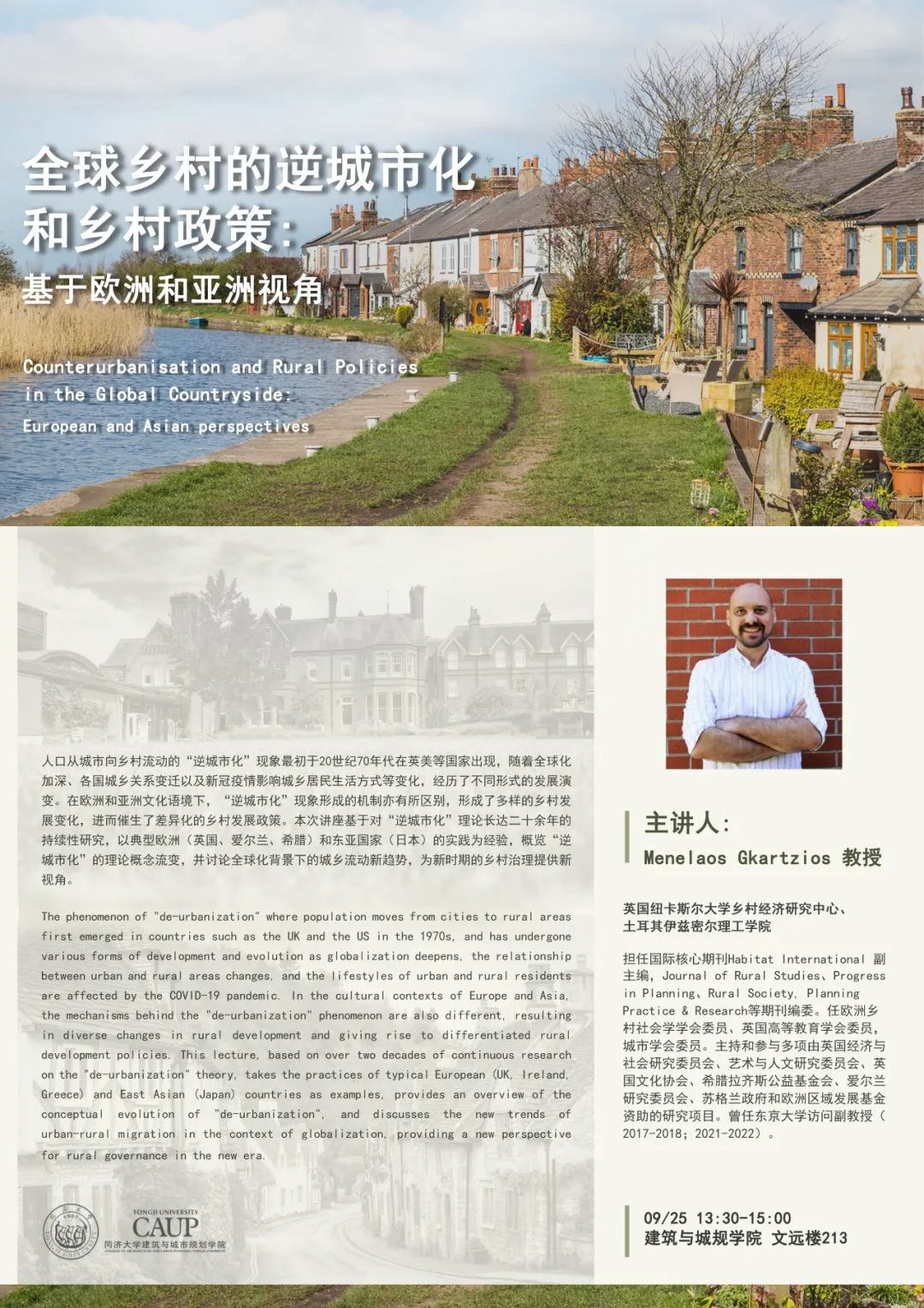

The phenomenon of de-urbanization where population moves from cities to rural areas first emerged in countries such as the UK and the US in the 1970s, and has undergone various forms of development and evolution as globalization deepens, the relationship between urban and rural areas changes, and the lifestyles of urban and rural residents are affected by the COVID-19 pandemic. In the cultural contexts of Europe and Asia, the mechanisms behind the de-urbanization phenomenon are also different, resulting in diverse changes in rural development and giving rise to differentiated rural development policies. This lecture, based on over two decades of continuous research on the de-urbanization theory, takes the practices of typical European (UK, Ireland, Greece) and East Asian (Japan) countries as examples, provides an overview of the conceptual evolution of de-urbanization, and discusses the new trends of urban-rural migration in the context of globalization, providing a new perspective for rural governance in the new era.
Sept 25th (Wed.), 2024
13:30-15:00
Room 213, Building A, College of Architecture and Urban Planning,
Tongji University
 ABOUT US
ABOUT US




